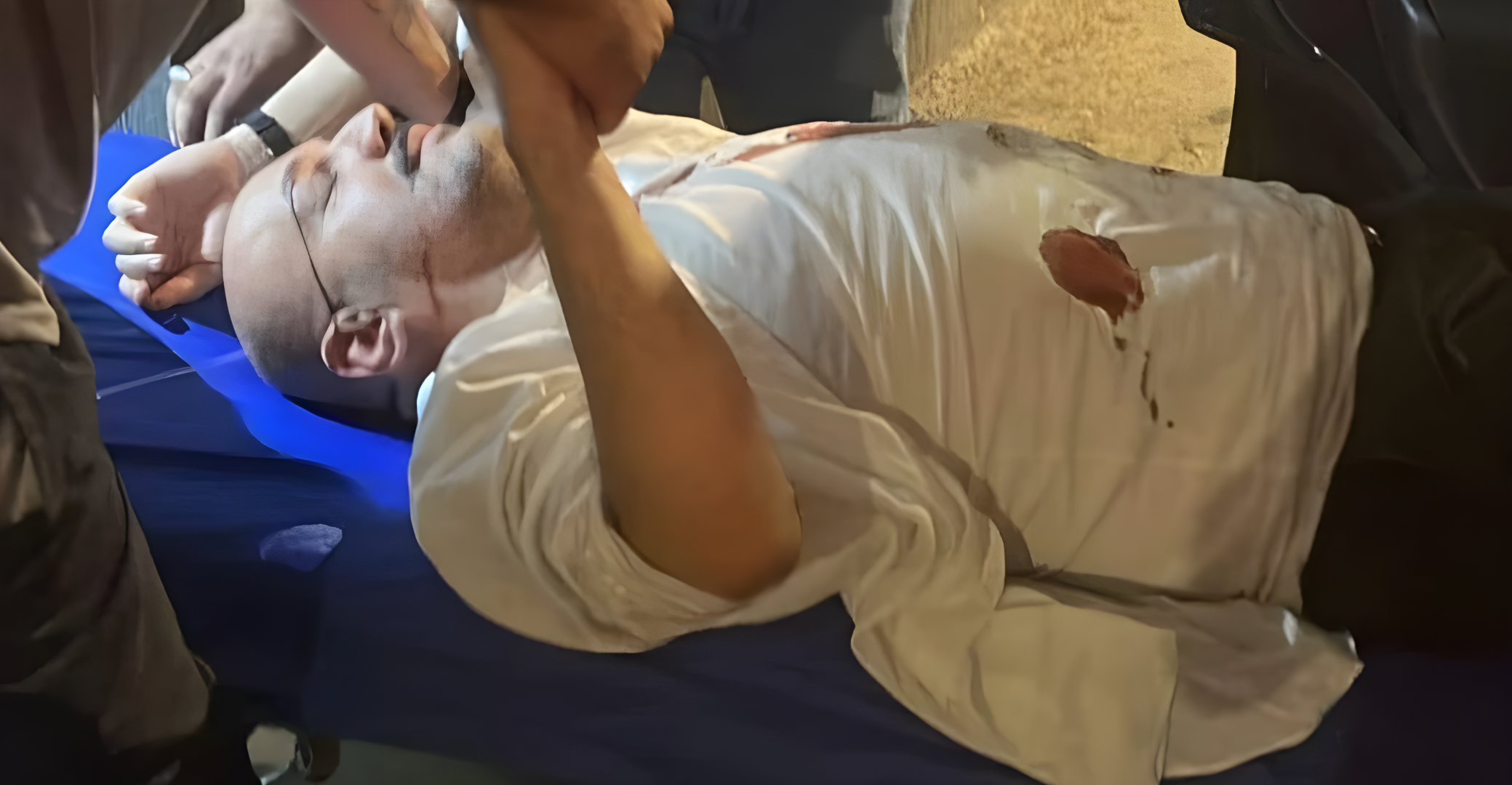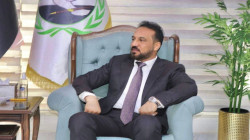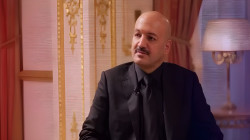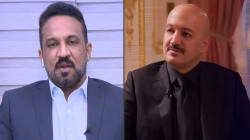Iraqi businessman Noor Zuhair's trial in doubt after unverified car accident reports

Shafaq News/ Reports of Iraqi businessman Noor Zuhair's alleged involvement in a "fatal car accident" in Beirut's Hadath area have generated significant concern in Iraq. His trial, postponed from August 14 to August 27 due to his initial absence, faces uncertainty due to the incident's potential impact on legal proceedings and his court appearance. Legal experts are evaluating how this development may affect the case.
Noor Zuhair: Top Accused Vs Innocent
In 2022, over 3 trillion Iraqi dinars (approximately $2.5 billion) were reported missing from tax deposits due to fraudulent checks by a coalition of five oil companies. This led to orders summoning officials close to former Prime Minister Mustafa Al-Kadhimi, including Finance Minister Ali Allawi, the Prime Minister's Office Director Raed Jouhi, and others.
On October 24, 2022, Noor Zuhair, the chairman of one of the companies involved in the case, was arrested. He was later released on bail after Prime Minister Mohammed Shia Al-Sudani announced that 5% of the stolen amount had been recovered, with Zuhair pledging to return the full sum within days.
Noor Zuhair Jassem Al-Muthaffar, also known as Abu Fatima, was born in Baghdad in 1980 and previously worked in Iraqi ports before serving as an advisor in the office of the former chairman of the Parliamentary Finance Committee. Reports indicate that Zuhair owns over 20 luxury properties in Baghdad and holds significant financial assets and businesses.
A prominent businessman and the managing director of Al-Mubdeoon Oil Services Company, Zuhair was arrested while attempting to flee the country via a private jet from Baghdad International Airport. He has been accused of playing a key role in the scheme.
He was scheduled to appear before the Central Criminal Court in Baghdad on August 27 for his trial.
In a recent television interview, he defended himself, calling for a public trial and threatening to reveal names and details related to corruption cases.
Speaking to Al Sharqiya TV's "Al-Muwajaha" program, Zuhair insisted, "The funds I possessed were backed by checks and transactions audited by the Integrity Commission; they are not state funds. Not a single dinar belongs to the state." He described the alleged theft of tax funds as a "fabrication" and claimed that a member of parliament, who is now speaking out against him, once requested a house in Baghdad's upscale Al-Mansour district with a plot size of 1,200 square meters, referring to Iraqi MP Mustafa Sanad.
Zuhair also claimed that the "Theft of the Century" was nothing more than the "Lie of the Century," vowing to take legal action against those accusing him of theft in international courts.
Unconfirmed Reports of Car Accident In Beirut
Reports from Lebanese media on Friday claimed that Zuhair was involved in a severe car crash in the Hadath area in the Baabda District of the Mount Lebanon Governorate and was subsequently hospitalized. However, sources at Saint Therese Hospital, where he was supposed to be transported, declined to confirm or deny whether Zuhair had been admitted, citing medical confidentiality.
The Lebanese Red Cross and Civil Defense also stated that they had no records of an individual named Noor Zuhair or any incident involving him being transported to a hospital in the capital.
A Lebanese security source told Shafaq News Agency that Zuhair left Lebanon on Friday after a brief stay of three days.
The source, who spoke on condition of anonymity, confirmed Zuhair's departure to the United Arab Emirates but did not comment on reports suggesting he was involved in a car accident while in Lebanon.
Official Proof Required for Postponement
Regarding the legal implications after Zuhair's accident for the ongoing trial, legal expert Mohammed Jumaa clarified that "reports, news, and images circulating about Noor Zuhair's alleged accident are not binding for the court. The court deals with official documents, not media reports or photos published here and there."
Jumaa added in a statement to Shafaq News Agency, "If Noor Zuhair's defense team wishes to request another postponement of the trial, they must submit official medical reports proving that their client was involved in an accident and that his medical condition prevents him from attending the court in Iraq. Otherwise, the Criminal Court may proceed with the trial in his absence, revoke the bail, and issue an arrest warrant against him. However, the case could be delayed if there are other reasons for postponement, such as a request from the complainants from the Tax Authority and the Ministry of Finance."
Court's Options Following the Accident
Attorney Walid Al-Shabeebi explained that Iraq's Code of Criminal Procedure No. 23 of 1971 governs situations like this, specifically in Articles 143 to 151, which address the defendant's presence at the trial, whether in criminal or misdemeanor courts. Article 22 allows for the trial of a defendant in absentia if they fail to appear without a valid excuse after being properly notified, and this applies even if their legal representative is present.
Al-Shabeebi told Shafaq News Agency that "if the defendant notifies the court of a legitimate excuse, the court has two options: either accept the excuse and postpone the trial or proceed with the trial and issue a judgment."
Given the recent accident in Lebanon, "the court now faces two options: either postpone the case due to this medical condition or, if the excuse is deemed unacceptable or fabricated, the Iraqi authorities could request the Lebanese counterparts to extradite him, or pursue him through Interpol."
Trial in Absentia or Interpol Involvement
Legal expert Ali Al-Tamimi noted that "the case of Noor Zuhair has been referred from the Investigative Court to the Criminal Court under Article 444, Section 11 of the Penal Code, which pertains to the theft of state funds. The penalty for this crime can be up to 10 years in prison. However, the defendant was released on bail, and the Criminal Court postponed the hearing to the previous session due to the defendant's failure to appear."
Al-Tamimi told Shafaq News Agency that "the court has the right to postpone the hearing once or twice if there are valid reasons, such as an emergency preventing the defendant from being brought to court. In such cases, the court may defer the hearing later."
"Suppose the defendant is not presented in the upcoming sessions. In that case, the Criminal Court has the authority to revoke the bail and refer the guarantor to the Investigative Court under Article 119 of the Code of Criminal Procedure, which carries a penalty of six months in prison."
He explained that "if the Criminal Court takes this action and the defendant still does not appear, or if the guarantor declares an inability to bring the defendant, the court may transition the trial from a public to an absentia trial. This means that the proceedings will be conducted in the defendant's absence after the court sets a two-month deadline for the trial and announces it in the media. If the defendant fails to appear within six months, the in absentia trial becomes a public trial, and the verdict is considered as if the defendant were present. The ruling will be publicized across all media outlets in Iraq. If the case reaches this stage, the Public Prosecution or the Integrity Commission will contact Interpol to bring the fugitive defendant to justice."
Al-Tamimi stated regarding the reported car accident in Beirut, "This incident needs to be substantiated with documented medical reports, which should be sent to Iraq either through the defendant's representative, guarantor, or lawyer. These communications must be official, transmitted from Beirut's Ministry of Health to Iraq."





